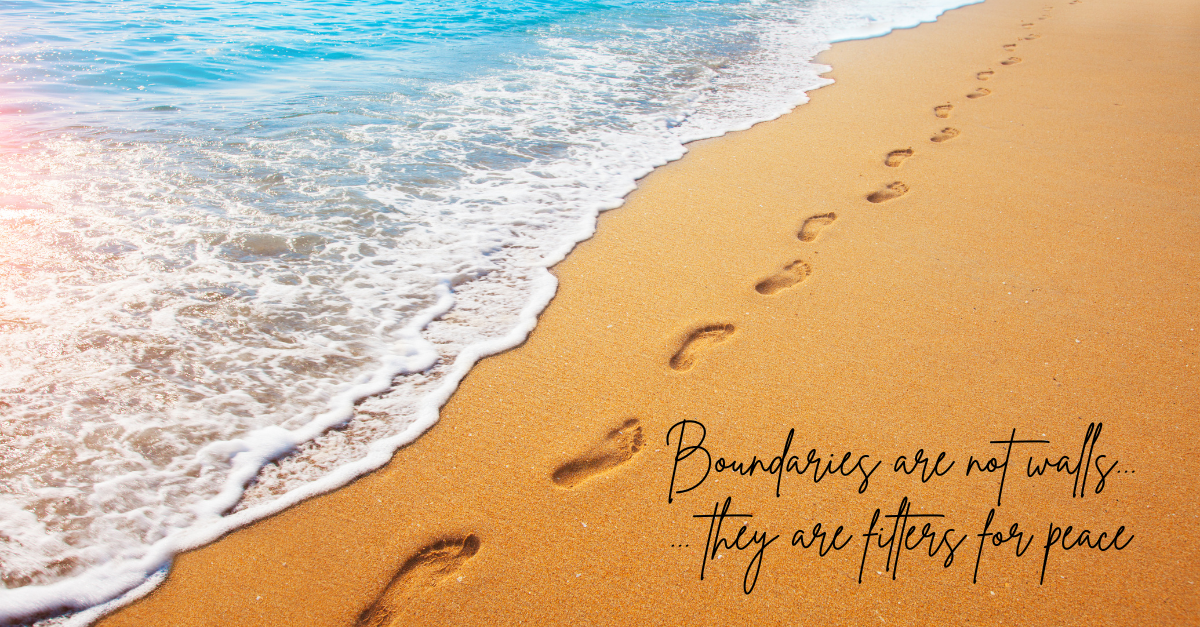If you feel guilty for setting boundaries, good - you’re probably on the right path. You’re probably just not used to being allowed to do so. So let’s fix that!
Step 1:
A boundary is not a rejection.
A boundary is an invitation to relate to you differently.
Step 2:
Shift your perspective.
Step 3:
Set and tweak your boundaries as you go - find what is comfortable to you and what fits best.
Don’t think of boundaries as an excuse to push people away, instead, see how it’s about protecting your peace. You deciding on who gets access to your time, energy, and emotional bandwidth. But if the word boundary makes you feel like you’re being cold, rude, or dramatic… then you’ve probably been told that from / by people who didn’t understand what they were themselves.
You Were Praised For Being Easy
So you learned that being liked = being available.👎🏻 Being available = easygoing.
Easy to work with. Easy to talk to.
Even if it meant:
– Shrinking your needs for others
– Being everyone’s sounding board
– Letting things slide
– Apologizing for asking
– Shoving down your own resentment
Which example(s) sound familiar to you?
It’s not that you don’t have boundaries… It’s just that your nervous system still sees expressing them as a threat to your safety, identity, or relationships. This internal guilt isn’t a sign that your boundary is wrong, it just means that you are stepping out of a role placed on you and stepping into what one would call power. Power isn’t quite the word I would personally use - but, it’s fitting.
Role examples:
– The fixer
– The peacekeeper
– The one who “doesn’t need much”
– The one who can handle it all
But here’s the good news about roles - they were learned. So that means, yup, they can be unlearned. Especially when you realize that being responsible for everyone’s emotions was never your job in the first place.
Boundaries Don’t Close People Out
Instead, they create clarity - about what kind of relationship / connection you’re available for.
When you say, “I do not appreciate being spoken to that way,” You’re not shutting someone down. You’re giving them a choice to re-word what they said or how they said it to you. Remember, this can be done in a calm tone, where it’s more of an informative sentence as opposed to a barking demand.
When you say, “I won’t be taking on that (project / event / task) right now,” You’re not being rude. You’re being self-responsible. We’re only human and can only take on so much at a time and telling someone you can do something then not being able to can, and will, cause friction - whether intentional or not.
Even something general as, “That doesn’t work for me,” You’re not starting conflict. You’re setting the tone from the beginning, for an honest connection.
So What Do Healthy Boundaries Sound Like?
– “Let me get back to you once I check in with myself.”
– “I’m happy to help - but not at the expense of my own bandwidth.”
– “That crosses a line for me.”
– “I want to support you, but I also need to support myself.”
Simple. Honest. Clear. No over-explaining required. No spreadsheet of reasons needed.
Want To Go Deeper?
The Boundaries Workbook is designed to help you recognize the subtle patterns that sabotage your limits to rebuild them from a place of clarity, safety, and self-trust.
You’ll explore:
– Why boundaries feel “selfish” (and why they’re not)
– Nervous system responses behind guilt and shutdown
– Real-life reframes and scripts you can use today
– Journal prompts for clarity, self-permission, and emotional cleanup
And even if all you do today is say “I’ll get back to you” - instead of a rushed yes - that’s a boundary. And I’m proud of you!
🖤



Comments ()